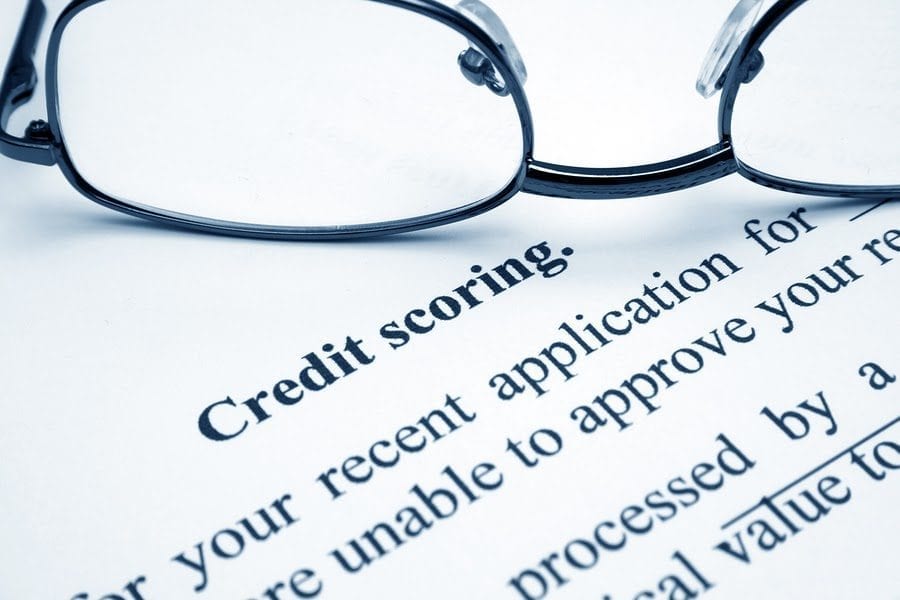If you file for bankruptcy in Pennsylvania, the bankruptcy will be noted on your credit report, regardless of which court you file in or which chapter you file under. Even though the bankruptcy will initially lower your credit score, the elimination of your dischargeable debts will empower you to build good credit in the future. In fact, in many cases, debtors are actually able to build better credit than was possible prior to the bankruptcy. Our Philadelphia bankruptcy lawyers explain how long a Chapter 7 bankruptcy will stay on your credit report, how the bankruptcy is eventually removed from your credit report, and how your credit score may be affected in the short and long term.

How Long Does it Take for Chapter 7 to Be Removed from Your Credit Report?
Chapter 7 bankruptcy will remain on your credit report for a period of 10 years. The 10-year period begins with the date of filing, not the date of discharge, which is fortunate in that filing precedes discharge by a period of, in most cases, about four to six months. (In Chapter 13 bankruptcy, the gap between filing and discharge is even wider, ranging anywhere from 36 to 60 months.) Unless one of the credit reporting bureaus makes an error, the bankruptcy will automatically come off your credit report after 10 years have passed.
Your Credit Score After Chapter 7 Discharge
There is no way around the fact that a Chapter 7 bankruptcy will initially destabilize your credit score. However, if you are in a position to be considering bankruptcy, it is likely that your credit score is already lower than you would like it to be – and with the clean slate bankruptcy affords, it will be that much easier to establish (and maintain) good credit throughout your future. In this regard, filing for bankruptcy is similar to repairing a damaged tooth: the procedure may cause some discomfort at first, but in the long run, the patient will be healthier for it.
How to Get Chapter 7 off Your Credit Report
Unfortunately, there is no way to forcibly remove the record of a Chapter 7 bankruptcy from your credit report before the 10-year reporting period has elapsed. However, there are also a few pieces of good news.
The first is that you don’t have to wait 10 years to have good credit again. In fact, you can begin rebuilding your credit immediately. Some tips for rebuilding your credit after bankruptcy include making timely payments on your monthly bills, opening a secured credit card, and creating a detailed monthly budget for yourself, which will help you avoid overspending on luxuries, while simultaneously avoiding delinquency on important payments.
The second piece of good news is that you may be able to obtain a loan during the 10-year period, even with the bankruptcy still on your credit report. While having a bankruptcy in your history can make qualifying for loans more difficult, believe it or not, there are actually lenders who invite borrowers with bankruptcies because they are largely free of debt and cannot file again until a certain number of years have passed.
The third is that, when the 10-year period does elapse, the bankruptcy should be removed from your credit report automatically. You do not have to contact Equifax, TransUnion, or Experian to request the removal. (In fact, “You don’t have to do anything,” to quote Experian.)
That being said, it is wise to take advantage of the annual free credit report to which you are entitled. Requesting the report costs you nothing, but gives you an opportunity to make sure that the information contained therein is correct, complete, and up-to-date. You are entitled to one free report from each of the three credit reporting companies once every 12 months. To request your free credit report, simply call (877) 322-8228, or request a free credit report online by visiting annualcreditreport (dot) com.
As a word of caution, do not be confused by services with similar names or URLs. The aforementioned website is the only website that has the authority to distribute free credit reports in the United States. Other services will invariably charge you money or – even worse – attempt to collect sensitive personal information, often through deceptive emails or pop-ups.

Philadelphia Bankruptcy Attorneys for Chapter 7 and Chapter 13
The Philadelphia Chapter 7 lawyers of Sadek Bankruptcy Law Offices have helped thousands of people get the fresh financial starts they deserve through the power of personal bankruptcy. We are well versed in federal bankruptcy regulations, state bankruptcy exemptions, and local court rules, and will analyze your goals, debts, and resources to make sure your bankruptcy is structured in a practical, efficient way that makes financial sense for your unique situation.
Bankruptcy can end creditor harassment, wipe away debts, and even protect your car or house – and the very first step is contacting our attorneys for help. To talk about your bankruptcy options in a free and confidential legal consultation with our Montgomery County Chapter 7 attorneys, Delaware County Chapter 7 attorneys, or Philadelphia Chapter 7 attorneys, contact Sadek Bankruptcy Law Offices at (215)-545-0008 today.





